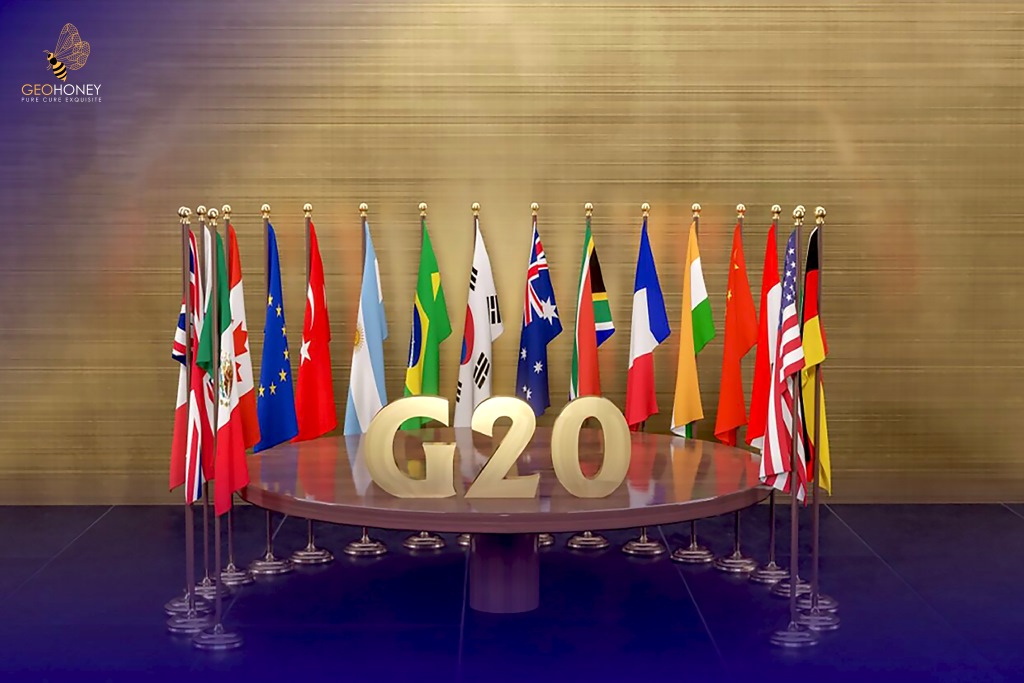- Tokyo: 21:52
- Singapore: 20:52
- Dubai: 16:52
- London: 12:52
- New York: 07:52
G20 Summit: Commitment to Climate Change & Financing Focus

G20 nations reaffirmed their resolve in New Delhi to achieve worldwide net zero GHG emissions/carbon neutrality by or around mid-century.
At the UN Framework Convention on climate Change (COP27) in 2022, UN Secretary-General António Guterres warned global leaders that mankind is on a "highway to climate hell with one foot on the accelerator." This sense of urgency to address rising temperatures and climate change was evident during the G20 Leaders' Summit in New Delhi, where the G20 nations pledged to accelerate their efforts to address environmental crises and problems, including climate change.
Climate change is a worldwide issue that requires global action, as the G20 is collectively responsible for around 80% of global emissions. The nations acknowledged that global ambition and implementation to address climate change remain insufficient to meet the Paris Agreement's temperature goal of keeping the global average temperature increase to well below 2 degrees Celsius above pre-industrial levels, and they will pursue efforts to limit the temperature increase to 1.5 degrees Celsius above pre-industrial levels. Furthermore, reducing global warming to 1.5 degrees Celsius needs rapid, profound, and persistent reductions in global GHG emissions of 43% by 2030 compared to 2019 levels.
The New Delhi Leader's Declaration urged all countries that have not yet aligned their NDCs with the Paris Agreement's temperature goal to revisit and strengthen their 2030 targets in their NDCs, as needed, by the end of 2023, taking into account different national circumstances. The G20 nations also agreed to pursue and encourage efforts to triple global renewable energy capacity through existing targets and policies, as well as to demonstrate similar ambition with regard to other zero and low-emission technologies, including abatement and removal technologies, by 2030, in accordance with national circumstances.
G20 nations in New Delhi also reaffirmed their commitment to achieve global net zero GHG emissions/carbon neutrality by or around mid-century, while taking into account the most recent scientific developments and in accordance with different national circumstances, taking into account various approaches such as the Circular Carbon Economy, socioeconomic, technological, and market development, and promoting the most efficient solutions.
Recognising the need for increased global investments to meet the Paris Agreement's climate goals, as well as to rapidly and significantly scale up investment and climate finance from billions to trillions of dollars globally from all sources, the G20 noted the need for $ 5.8-5.9 trillion in the pre-2030 period required for developing countries, specifically for their needs to implement their NDCs, as well as the need for $4 trillion per year for clean energy technologies by 2025.
The G20 members recalled and reaffirmed the developed countries' commitment made in 2010 to mobilise $100 billion in climate finance annually by 2020, and annually through 2025, to address the needs of developing countries in the context of meaningful mitigation action and transparency in implementation. Contributors from developed countries anticipate that this objective will be attained for the first time in 2023.
The G20 countries have agreed to successfully execute the COP27 decision on finance arrangements for reacting to loss and damage for aiding developing countries that are especially vulnerable to the adverse consequences of climate change, including the establishment of a fund. It was also stated that Parties (COP) should set an ambitious, transparent, and trackable New Collective Quantified Goal (NCQG) of climate finance in 2024, starting from a base of $100 billion per year and taking into account the needs and priorities of developing countries in fulfilling the UNFCCC's objective and implementing the Paris Agreement.
The leaders also reaffirmed the 'G20 High Level Voluntary Principles on Hydrogen', which aim to create a global hydrogen ecosystem that is sustainable and equitable for all nations.
And, because sustainable biofuels are key to achieving net zero emissions by 2050, the G20 Presidency inaugurated the Global Biofuels Alliance in New Delhi, with the US as a founding member with India, Brazil, Italy, Canada, Argentina, and South Africa. This new Alliance will bring nations together in order to expand and create new markets for sustainable biofuels.
Source: businesstoday.in




G20 is the premier forum for international economic cooperation. It performs a crucial role in shaping and strengthening global architecture and governance on all major international economic issues.